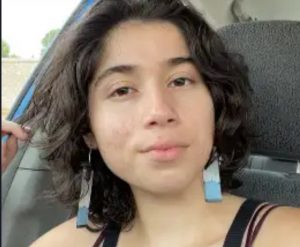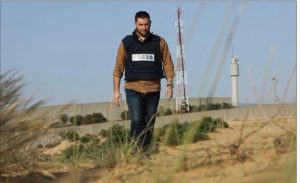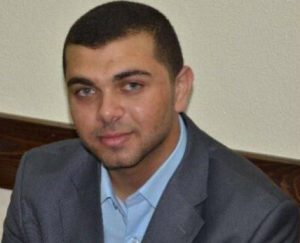Israel said Friday it sent ground forces into action and pounded Gaza in response to a new barrage of rocket fire from the Hamas-run enclave in a conflict that has now claimed over 100 Palestinian lives.
“Israeli planes and troops on the ground are carrying out an attack in the Gaza Strip,” the Israeli army said in a brief message.
The Israeli army clarified early Friday that its troops had not entered the Gaza Strip as it had earlier stated, blaming an “internal communication” problem for the confusion.
Just after midnight, the army sent a message to the media saying troops were in the Gaza Strip, and this was confirmed to AFP by the army’s spokesperson. But two hours later, the army published a clarification saying there were “no soldiers” in Gaza.
As the violence intensified, Israel security forces scrambled to contain deadly riots between Jews and Arabs, with projectiles also fired on Israel from Lebanon.
Also Read: This is how Israel-Palestine conflict started in 1947
US Secretary of State Antony Blinken said Washington was “deeply concerned about the violence in the streets of Israel”, voicing support for a United Nations Security Council meeting “early next week” on the crisis.
“We believe that Israelis and Palestinians deserve equal measures of freedom, security, dignity and prosperity,” Blinken said.
There were intense artillery exchanges Thursday night, and AFP reporters saw Israeli troops assembling at the security barrier.
Balls of flames rose high into the sky after strikes smashed into densely packed Gaza.
Dozens of rockets were fired from Gaza towards the southern Israeli coastal cities of Ashdod and Ashkelon, and in the vicinity of Tel Aviv’s Ben Gurion airport.
“We are prepared, and continue to prepare for various scenarios,” Conricus said, describing a ground offensive as “one scenario”.
In Gaza, AFP photographers said people were evacuating their homes in the northeastern part of the enclave ahead of possible Israeli attacks, with Hamas, the Islamist group that controls Gaza, warning of a “heavy response” to a possible ground incursion.
With the conflict showing no signs of easing, Israel has been rocked by an unprecedented wave of mob violence, in which both Arabs and Jews have been savagely beaten and police stations attacked.
Defence Minister Benny Gantz ordered a “massive reinforcement” to suppress the internal unrest.
The heavy bombardments coincided with the start of Eid al-Fitr, which marks the end of the Muslim holy fasting month of Ramadan, and saw the faithful pray at mosques and amid the rubble of Gaza’s collapsed buildings.
Israel’s air force launched multiple air strikes, targeting locations linked to Hamas, with the air force saying jets had struck a “military compound” of the group’s “intelligence headquarters”.
At least 103 people have been killed since Monday, including 27 children, and more than 580 wounded, the health ministry in Gaza said.
Heavy bombardments have brought down entire tower blocks.
Inside Israel, seven people have been killed since Monday, including one six-year-old, after a rocket struck a family home.
The Israeli military said earlier it had hit targets in Gaza more than 600 times while 1,750 rockets were fired from the enclave.
Hundreds of rockets were intercepted by the Iron Dome air defence system.
Three rockets were also fired from southern Lebanon towards Israel, landing in the Mediterranean Sea, Israel’s army said.
A source close to Israel’s arch-enemy Hezbollah said the Lebanese Shiite group had no link to the incident.
The military escalation was triggered by weekend unrest at Jerusalem’s Al-Aqsa mosque compound, which is sacred to both Muslims and Jews.
The disturbances, in which riot police had repeatedly clashed with Palestinians, has been driven by anger over the looming evictions of Palestinian families from the Sheikh Jarrah neighbourhood of east Jerusalem.
Also Read: Anthony Blinken deploys Middle East envoy to broker peace in Israel-Palestine region
The surging tensions sparked clashes in many of Israel’s mixed towns where Jews live alongside Arabs, who make up about 20% of the country’s population.
Nearly 1,000 border police were called in to quell the violence, and over 400 people were arrested.
Police spokesman Micky Rosenfeld said inter-communal violence in multiple towns was at a nadir not seen for decades, and that police were “literally preventing pogroms”.
Prime Minister Benjamin Netanyahu said police were increasing their use of force, warning of the “option” of deploying soldiers in towns.
Israeli far-right groups have clashed with security forces and Arab Israelis, with television footage Wednesday airing footage of a far-right mob beating a man they considered an Arab in Bat Yam, near Tel Aviv, leaving him with serious injuries.
In Lod, which has become a flashpoint of Arab-Jewish clashes this week with an Arab resident shot dead and a synagogue torched, a gunman opened fire Thursday at a group of Jews, wounding one.
Netanyahu said the violence was “unacceptable”.
“Nothing justifies the lynching of Arabs by Jews, and nothing justifies the lynching of Jews by Arabs,” he said, adding Israel was fighting a battle “on two fronts”.
Amid the rocket fire, Israel’s civil aviation authority said it had diverted all incoming passenger flights headed for Tel Aviv’s Ben Gurion airport to Ramon airport in the south.
Hamas announced it had also fired a rocket at Ramon, in a bid to stop all air traffic to Israel.
Israeli media said the rocket missed its target, but a number of international airlines cancelled flights amid the aerial onslaught.






